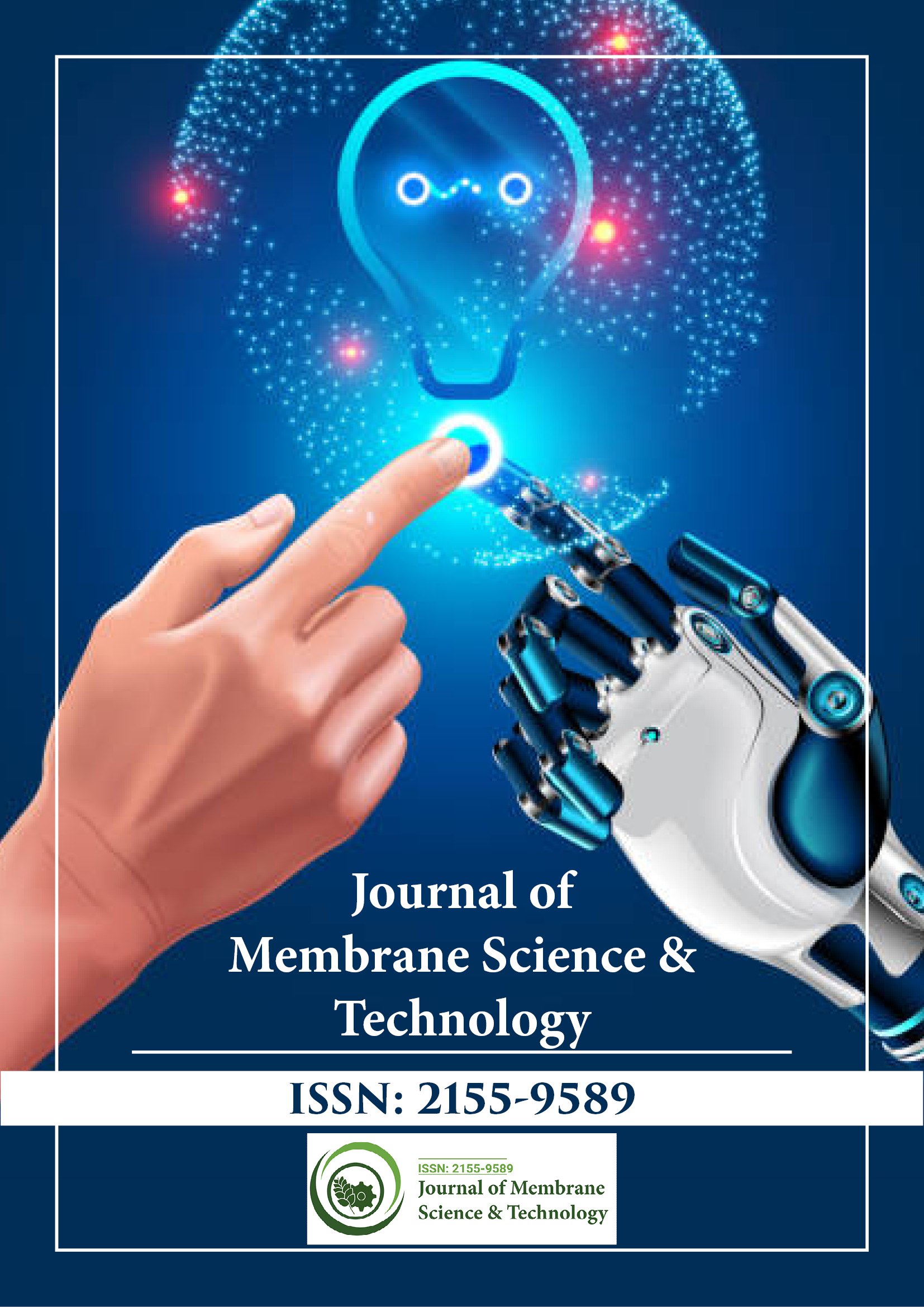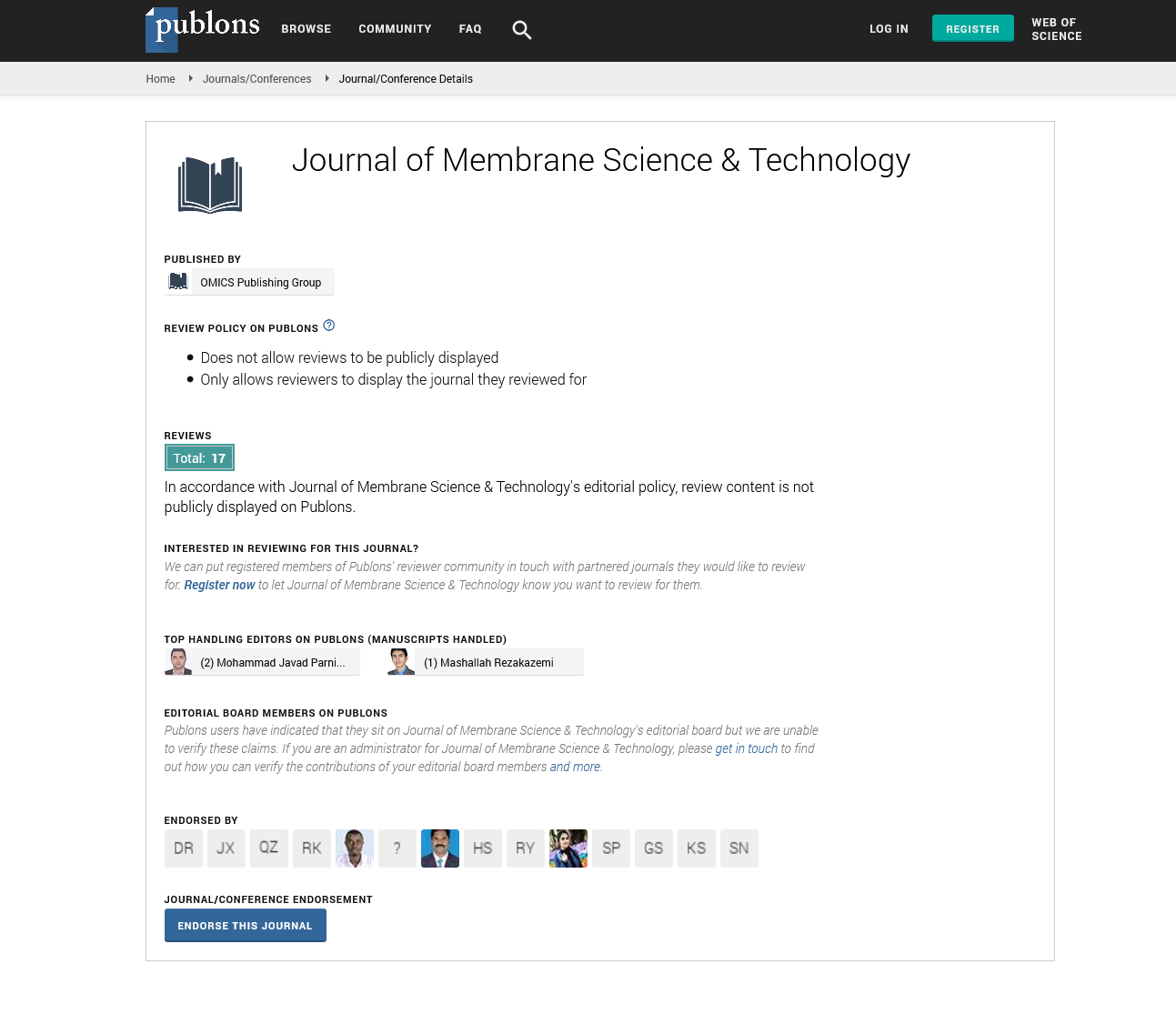Indexed In
- Open J Gate
- Genamics JournalSeek
- Ulrich's Periodicals Directory
- RefSeek
- Directory of Research Journal Indexing (DRJI)
- Hamdard University
- EBSCO A-Z
- OCLC- WorldCat
- Proquest Summons
- Scholarsteer
- Publons
- Geneva Foundation for Medical Education and Research
- Euro Pub
- Google Scholar
Useful Links
Share This Page
Journal Flyer

Open Access Journals
- Agri and Aquaculture
- Biochemistry
- Bioinformatics & Systems Biology
- Business & Management
- Chemistry
- Clinical Sciences
- Engineering
- Food & Nutrition
- General Science
- Genetics & Molecular Biology
- Immunology & Microbiology
- Medical Sciences
- Neuroscience & Psychology
- Nursing & Health Care
- Pharmaceutical Sciences
PVA and cellulose nanocrystal (CNC) nanocomposite membranes for CO2/CH4 separation at higher pressure
International Conference on Membrane Science and Technology
September 11-12, 2017 | Paris, France
Zaib Jahan, Muhammad Bilal Khan Niazi, May-Britt Hagg and �?�?yvind Weiby Gregersen
Scientific Tracks Abstracts: J Membra Sci Technol
Abstract:
High moisture uptake and excellent mechanical properties of cellulose nanocrystals (CNC) makes it an interesting material to be used as an additive in facilitated transport membranes. The objective of this work is to develop novel crystalline nanocellulose (CNC)/ PVA nanocomposite membranes for biogas upgrading at higher pressure up to 15 bars. Different pH of casting solution has been investigated to optimize CO2 separation. The swelling rates were investigated for step change in RH from 0% to 93%. Permeation test results showed that performance of membrane could be enhanced by addition of an optimized amount of CNC and pH control. Membrane with 1% CNC (wt. % PVA) at pH 10 performed best under given set of conditions. Above this concentration of CNC, the CO2 permeation and selectivity decreased. It was also observed that increasing pressure caused a decrease in the performance of the membranes for CO2 separation. SEM results revealed that thickness of membranes were increased to CNC concentration in solutions. This study has shown that addition of 1% CNC resulted in maximum CO2 capture and Swelling at pH 10.

